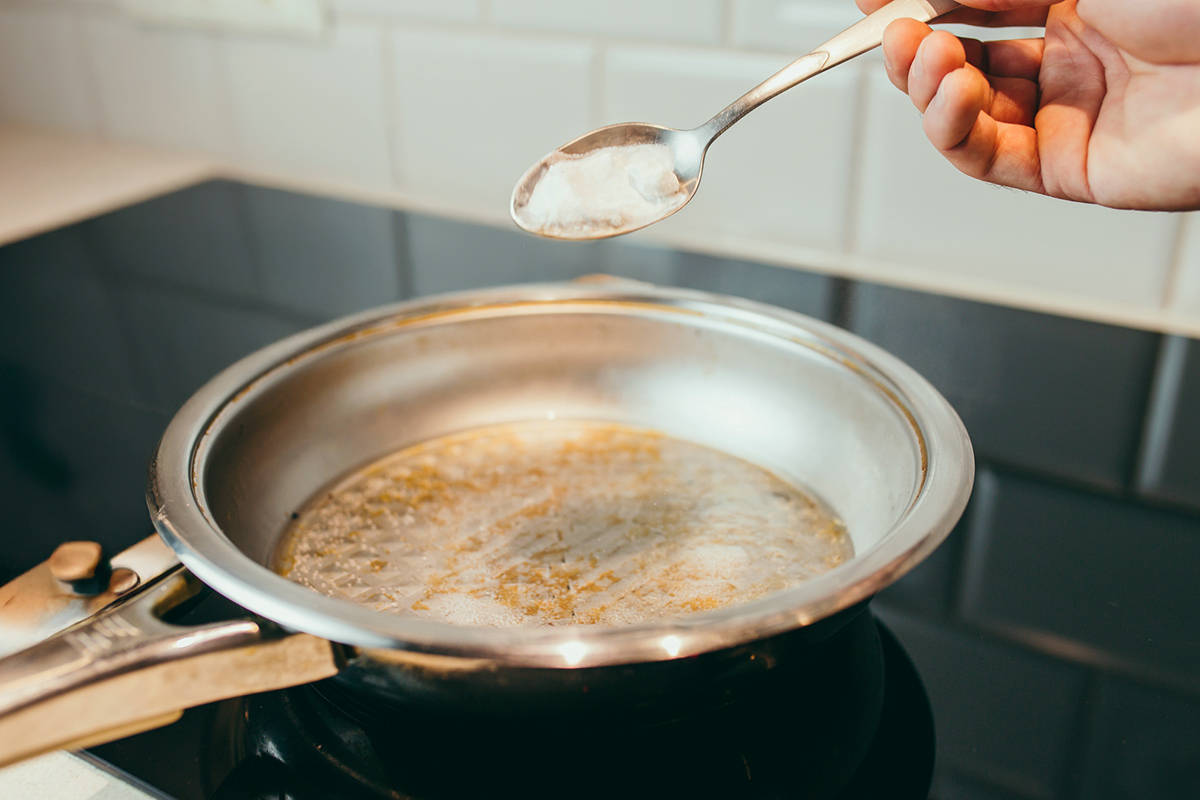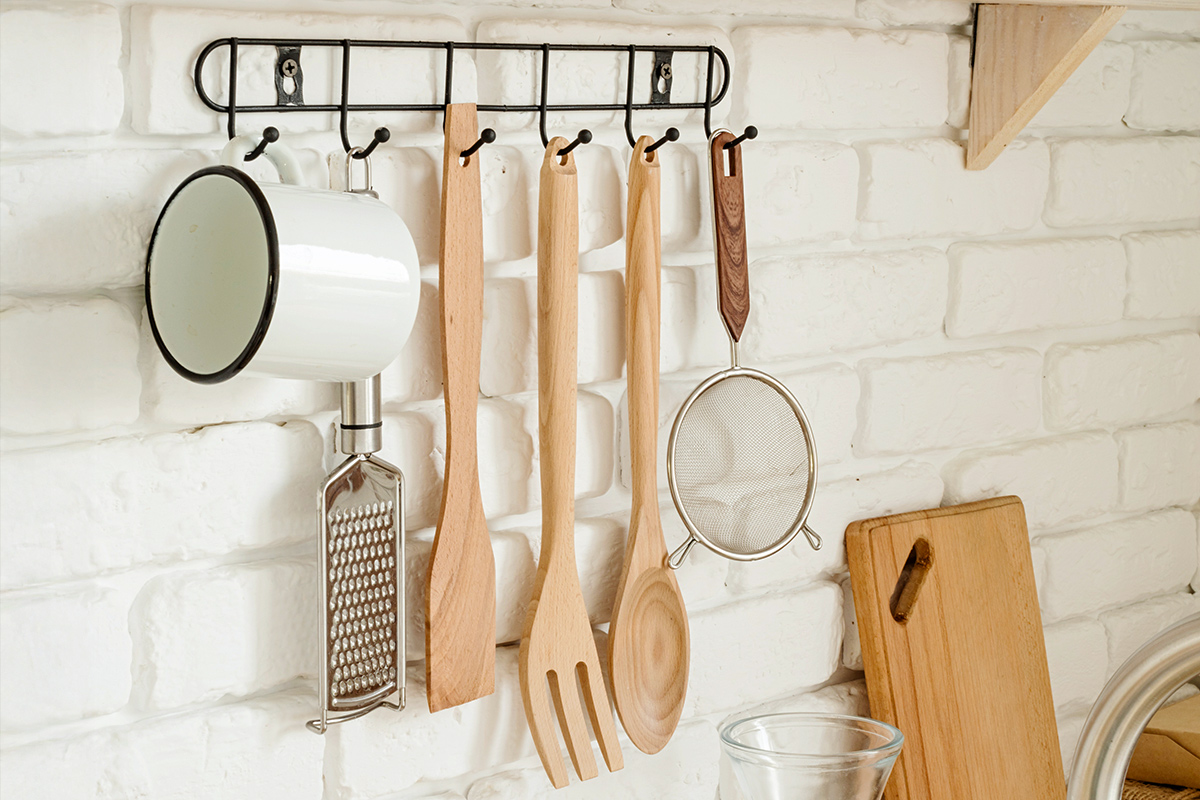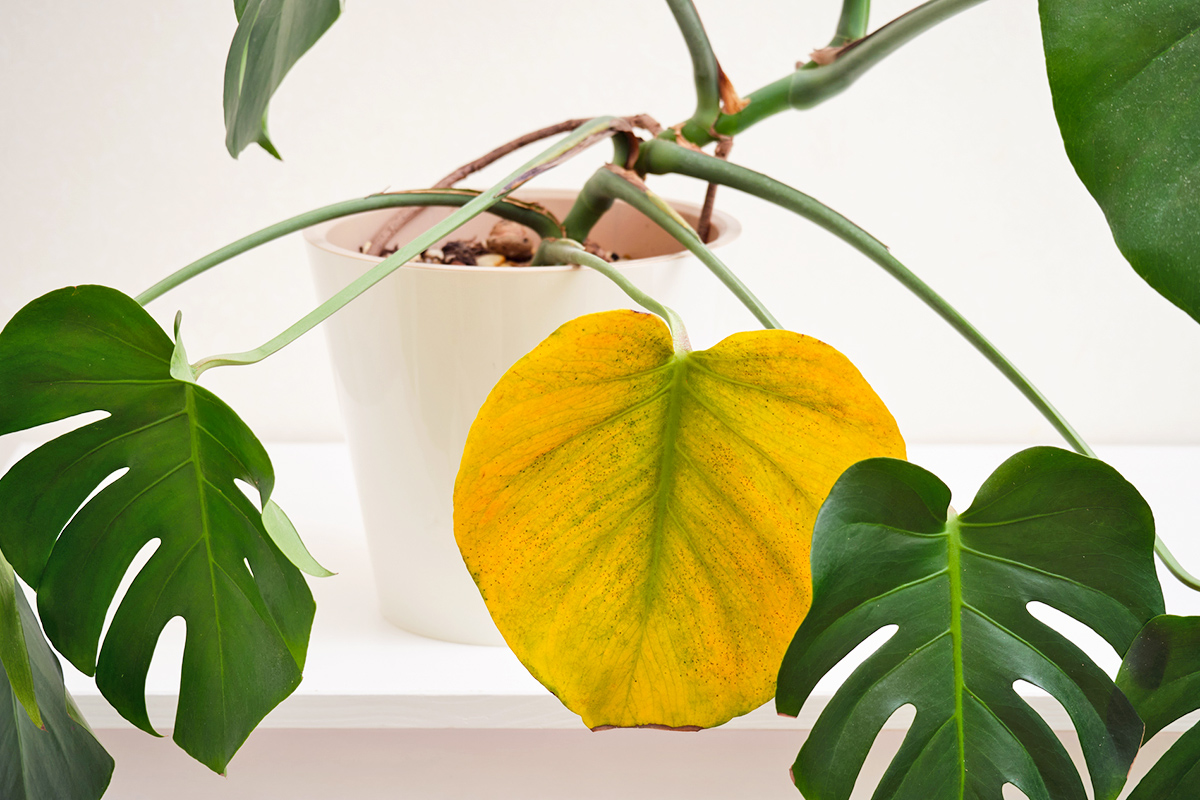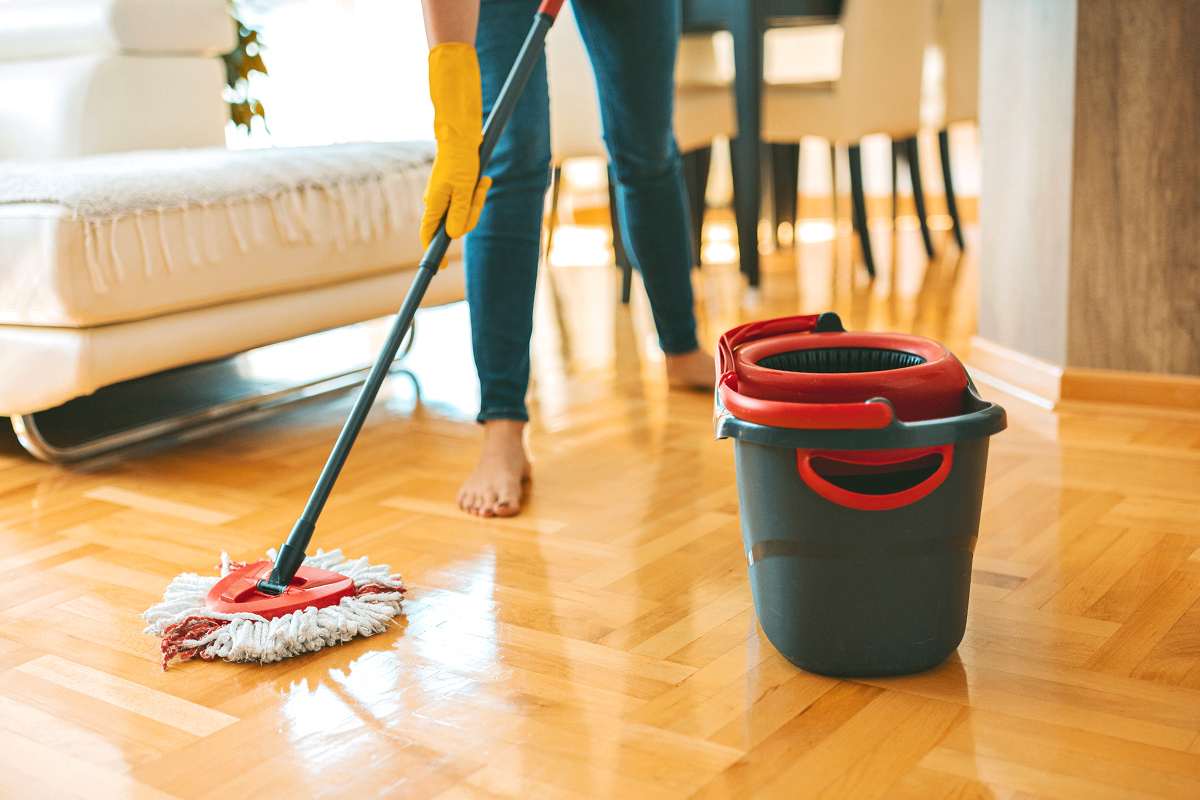Whether you’re a professional chef or someone who struggles to boil water, it takes only a few distracted moments for the food in your Dutch oven to start burning. Over time, this leads to discoloration in your pots and pans, as the charred residue can be quite difficult to remove. But instead of tossing out…
Keeping your pots and pans clean is essential for more than just aesthetic reasons. Burnt residue is unhygienic because charred bits of old food can flake off into what you’re cooking. Additionally, that layer of remnants can interfere with the heating process, preventing your pan from distributing heat evenly.
Simmer and Scrape
This cleaning hack is safe to use on most cookware, including stainless steel, nonstick materials, ceramic coatings, aluminum, and enameled cast iron.
To get those burnt pots or pans looking as good as new, fill the cookware with roughly 1 to 2 inches of water and add 2 tablespoons of baking soda. Place the pan on the stovetop and set the heat to low until the mixture begins to simmer. Once it’s simmering, let it sit for 15 minutes before removing it from the heat. Safely set the pan on a heat-resistant surface, then scrape off any burnt residue from the bottom using a wooden spoon or spatula.
It’s important to use wooden utensils for scraping instead of metal ones, or you risk scratching and damaging the cookware itself. After a few minutes of applying elbow grease, you should notice the burnt bits begin to disappear. If any residue remains, simply repeat the process.
More from our network
House Outlook is part of Inbox Studio, which publishes content that uplifts, informs, and inspires.
A Supercharged Alternative
For tougher stains, consider swapping the water for distilled white vinegar. Keep in mind, however, that vinegar and baking soda will chemically react, causing a vigorous fizz. To avoid making a mess, fill the pan with about a half inch of white vinegar and simmer it for a few minutes. Remove the pan from the heat and place it on a heat-safe surface before carefully adding 1 cup of baking soda. Once the fizzing dies down, dump the liquid down the drain and begin scrubbing away the burnt bits.
Another alternative is using lemon juice instead of water or vinegar. Its acidity also helps break down stains, though as with vinegar, this method may lead to fizzy spillage if combined with baking soda.
Tip: Avoid boiling acidic liquids, including vinegar and lemon juice, when cleaning nonstick, ceramic-coated, or aluminum cookware. Doing so may damage the coatings on the nonstick and ceramic pans, or cause pitting or discoloration in aluminum.




















